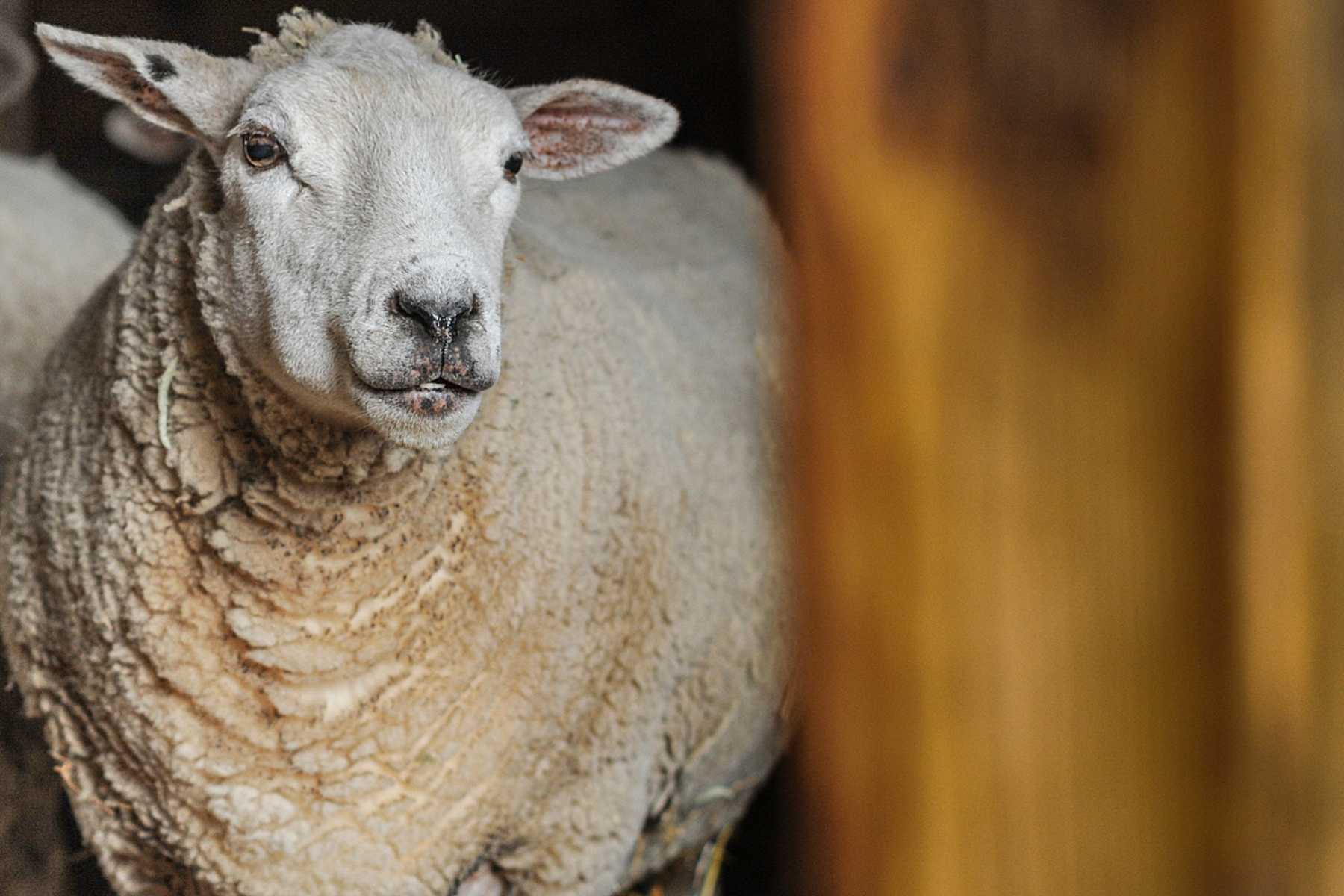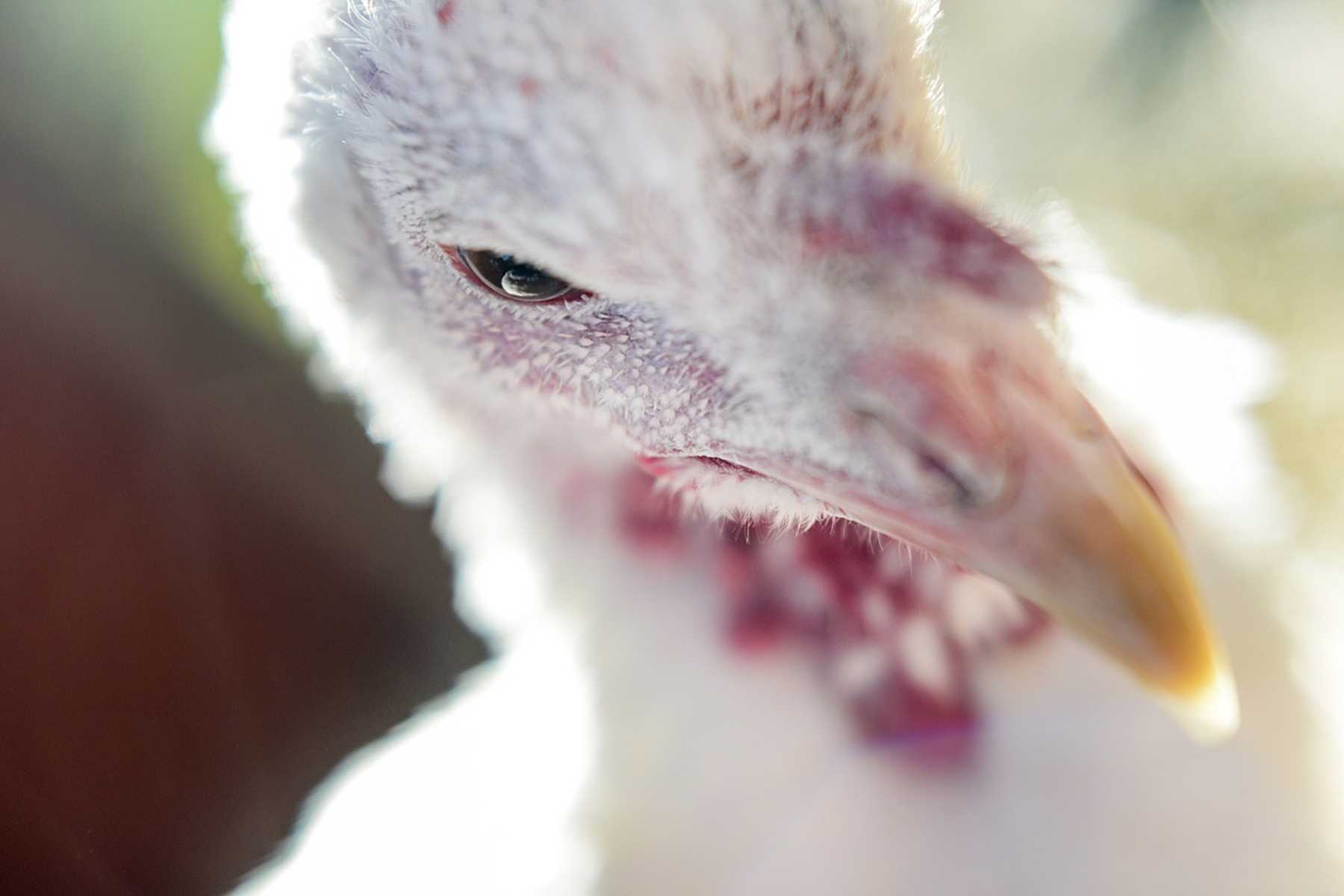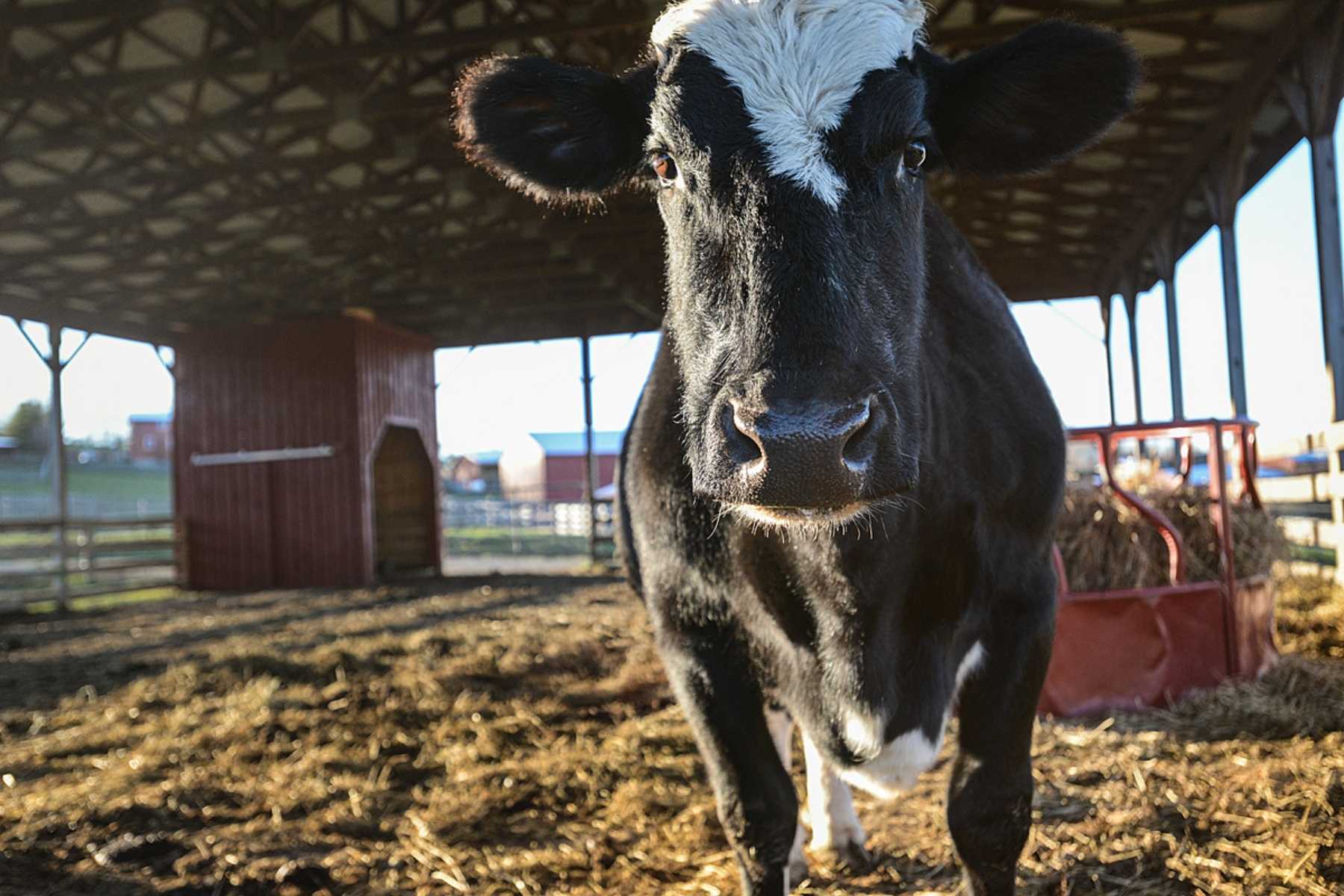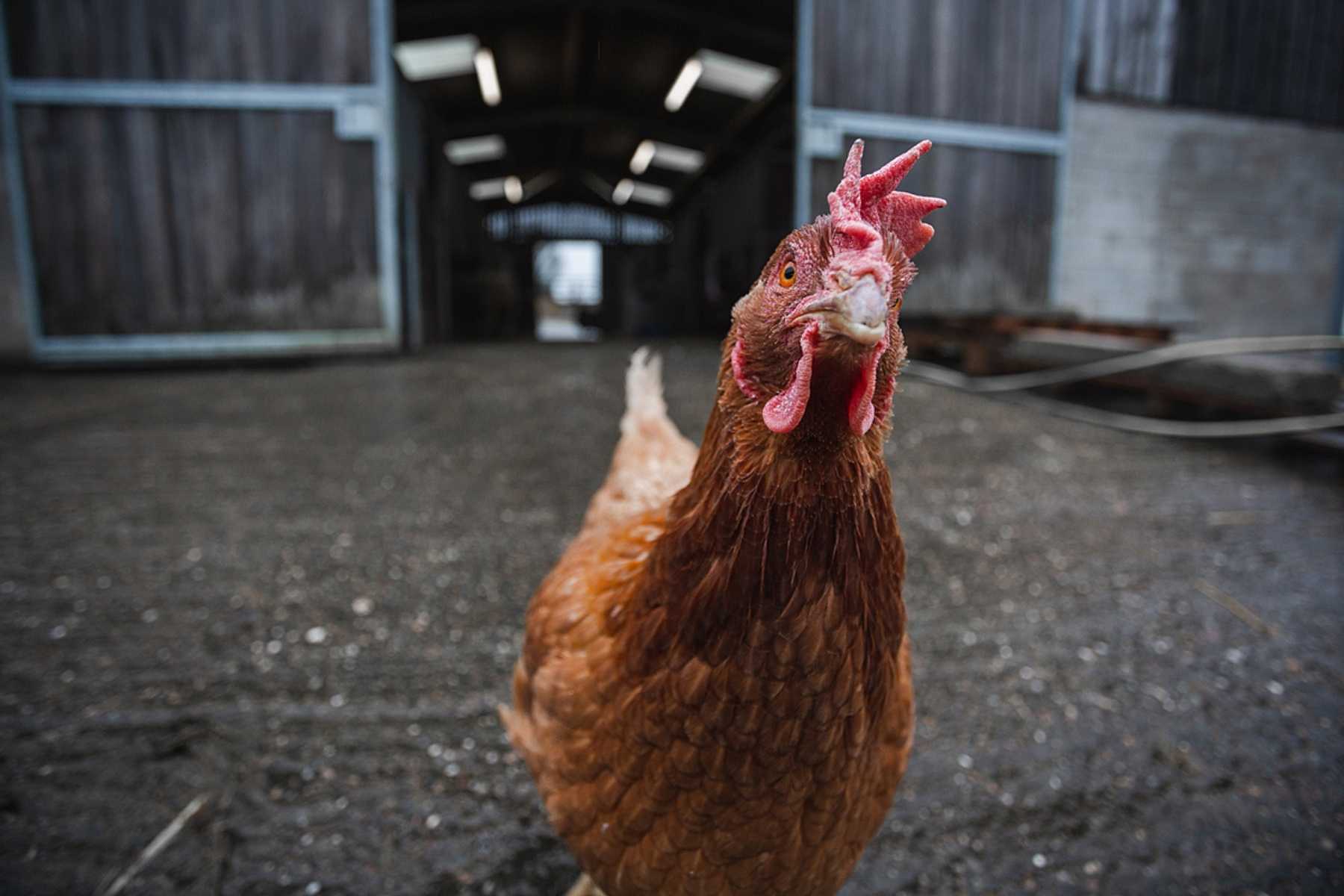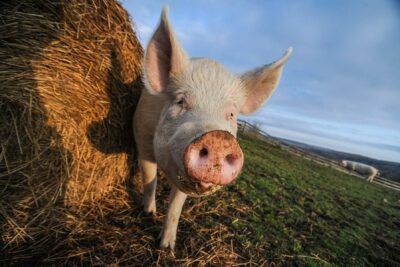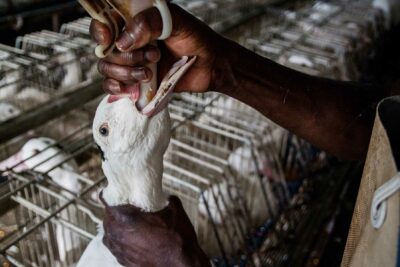Opinion polls consistently show that people do not approve of factory farming — the system of raising animals for slaughter in appalling, stressful, and cramped conditions. This is because most people care about animals, and would describe themselves as an animal lover. But then, most people still eat meat, and most meat comes from factory-farmed animals. So, how do we navigate this conundrum? What’s going on?
Children Really Do Love Animals
Almost all children love animals. Authors know this, which is why so many picture books have animals as characters. Toy-makers know this, which is why children’s bedrooms are full of stuffed bears, owls, pigs, and other creatures. Parents know this, which is why so many welcome ‘pets’ into their lives, and into their homes and families.
A recent study by the University of Exeter found that British children aged 9-11 believe farmed animals should be treated the same as pets and as people. They see no moral hierarchy between the different species who share this planet, believing each is deserving of equal care and respect. We see this belief in the countless films shared online where children from all over the world learn that the meat on the table is actually an animal. They are utterly distressed by the discovery.
It seems we start out being kind, compassionate, and consistent, and end up having to perform convoluted ethical and psychological gymnastics in order to keep holding two contradictory positions at the same time: 1) I love animals. 2) I pay for animals to have their throats cut.
How does this happen?
The Meat Industry Cannot Afford for Us to Truly Love Animals
The $2-trillion meat industry has a number of tried-and-tested tricks up its sleeve to ensure our love for animals does not stop us from eating them. Arran Stibbe, Professor of Ecological Linguistics at the University of Gloucestershire in the UK, has studied the language and imagery of the meat industry and describes three distinct ways animals are erased from our minds. He calls these: the void; the trace; and the mask.
The Void
This is just what it sounds like. Animals are completely absent from the discourse. Meat is marketed as a natural product, as a tasty food, as a way to enhance a desirable lifestyle. But the product never looks anything like an animal. No one mentions where it came from or what it really is, never mind the details, such as the conditions that the animal endured, or his or her personality, preferences, life experience, and friendships. Animals are just not mentioned at all. It is as if they never existed and had no part in this food system.
They show us this:
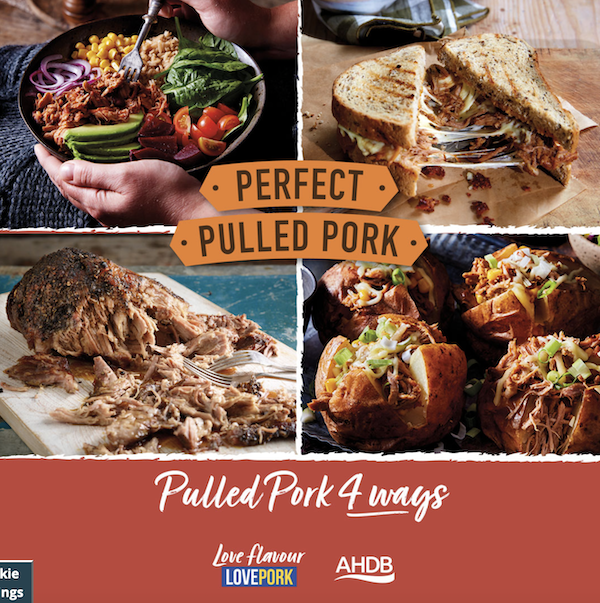
But they do not show us this:
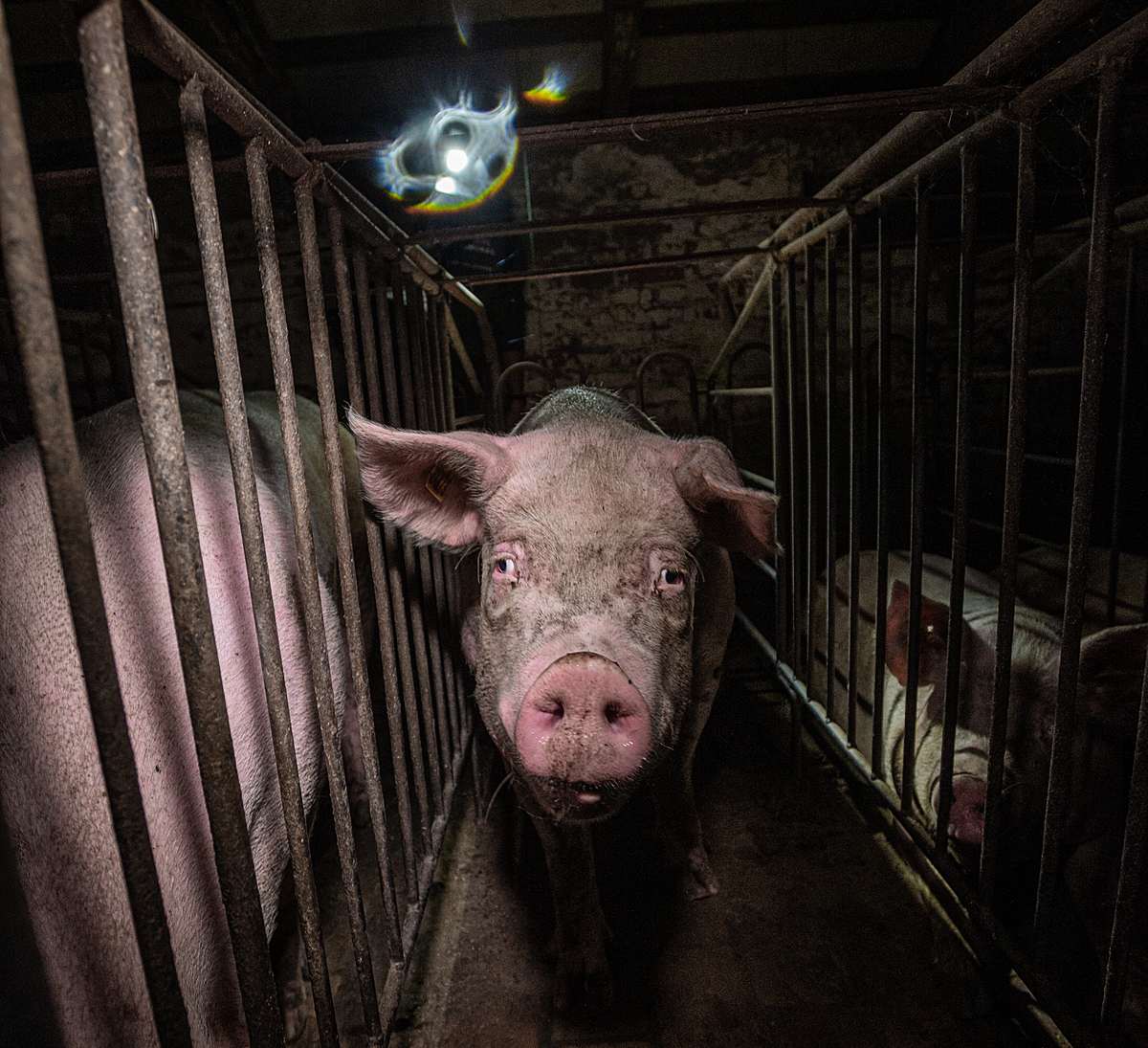
Image Credit: Jo-Anne McArthur / Essere Animali / We Animals Media
The Trace
In another of Professor Stibbe’s categories, the industry all but erases animals, leaving just a trace. The animal is not fully there but there is just a hint, an indirect reference, a silhouette, or an echo.
We can hear just a trace of the voice of chickens in this ad:
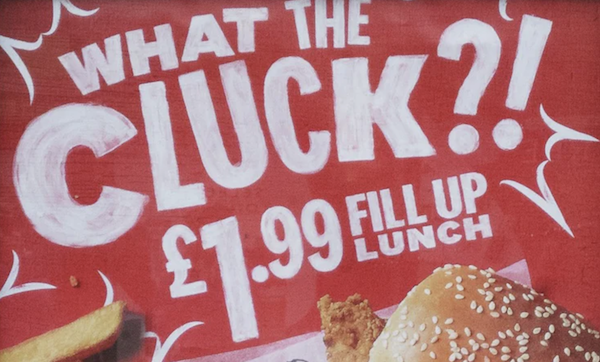
But we are never shown a real chicken crying out:
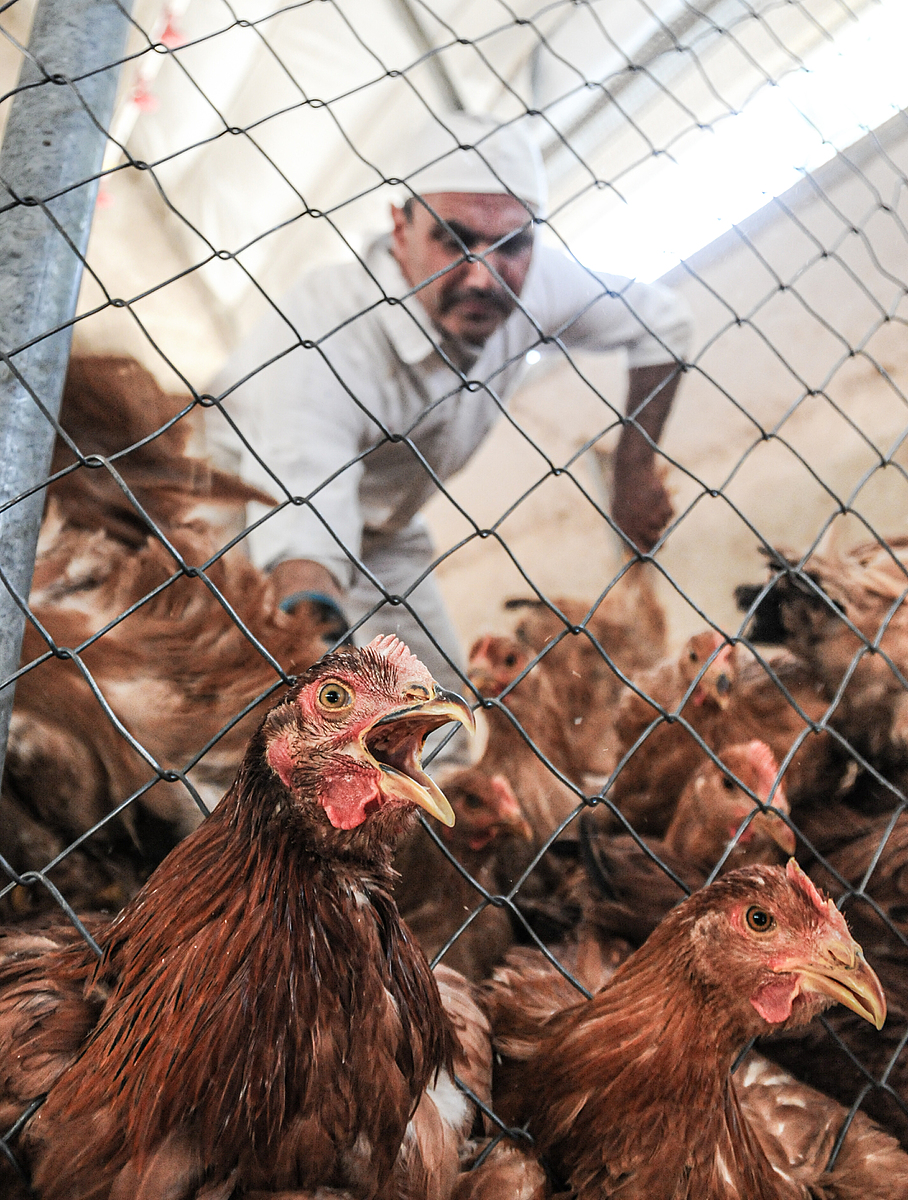
Image Credit: Jo-Anne McArthur / Animal Equality / We Animals Media
The Mask: Animals are Anthropomorphized
When animals are depicted in adverts as singing, dancing, playing football, or wearing party hats, their own lives and experiences are being erased. We are encouraged to laugh at animals behaving like fun-loving people, and to associate the product being marketed to us with positivity and joy. Such a depiction masks what it means to be a pig, cow, turkey, or chicken. And it certainly masks what it means to be an animal trapped inside the modern farming system.
We may have laughed along as this chicken strutted her stuff in a KFC ad.
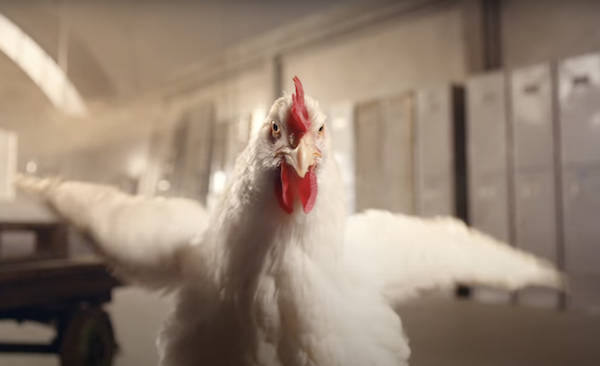
But we were never shown what a real chicken’s life is like inside a modern farm.
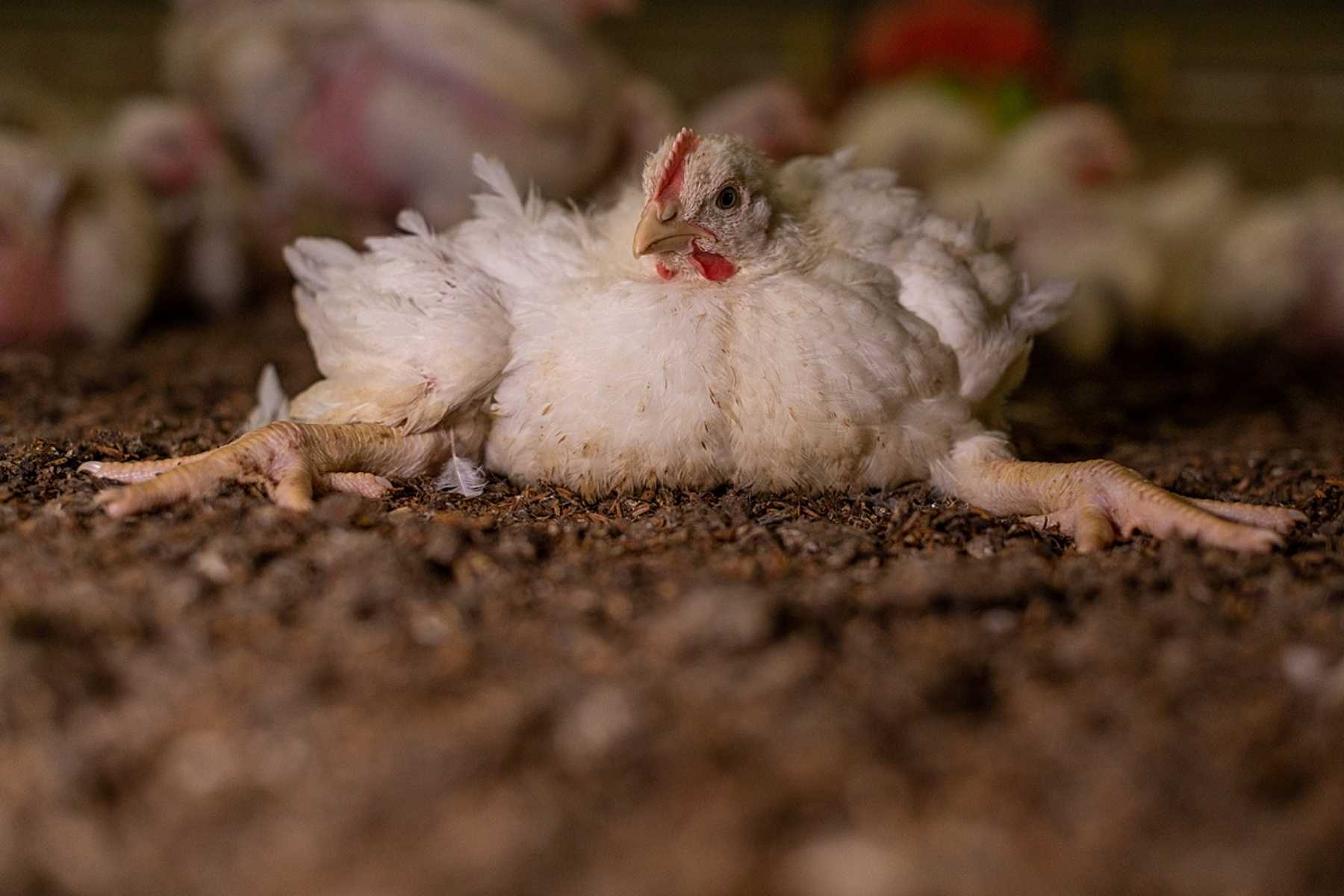
Image Credit: Stefano Belacchi / Equalia / We Animals Media
The Mask: Animals Are Cartoonified
How better to mask an animal than to recreate them in cartoon form? We know cartoons don’t feel pain — we see them beat each other up, run into walls, and fall off cliffs, and we laugh along. They’re not hurt! They’ll be just fine! So when we see cartoon images of animals, we are conditioned to feel that nothing can really hurt them because they don’t have real feelings.
We are shown this:
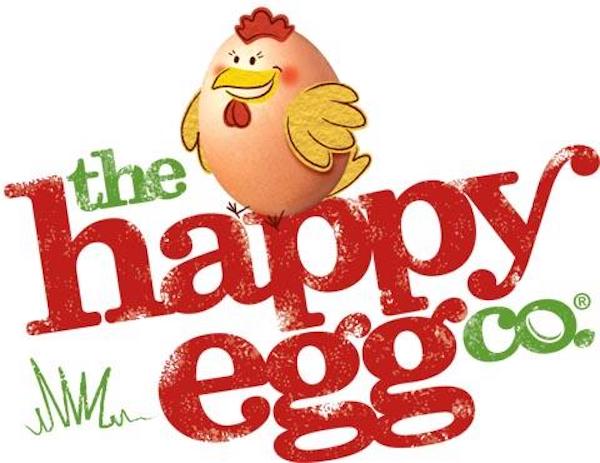
But we never see this:
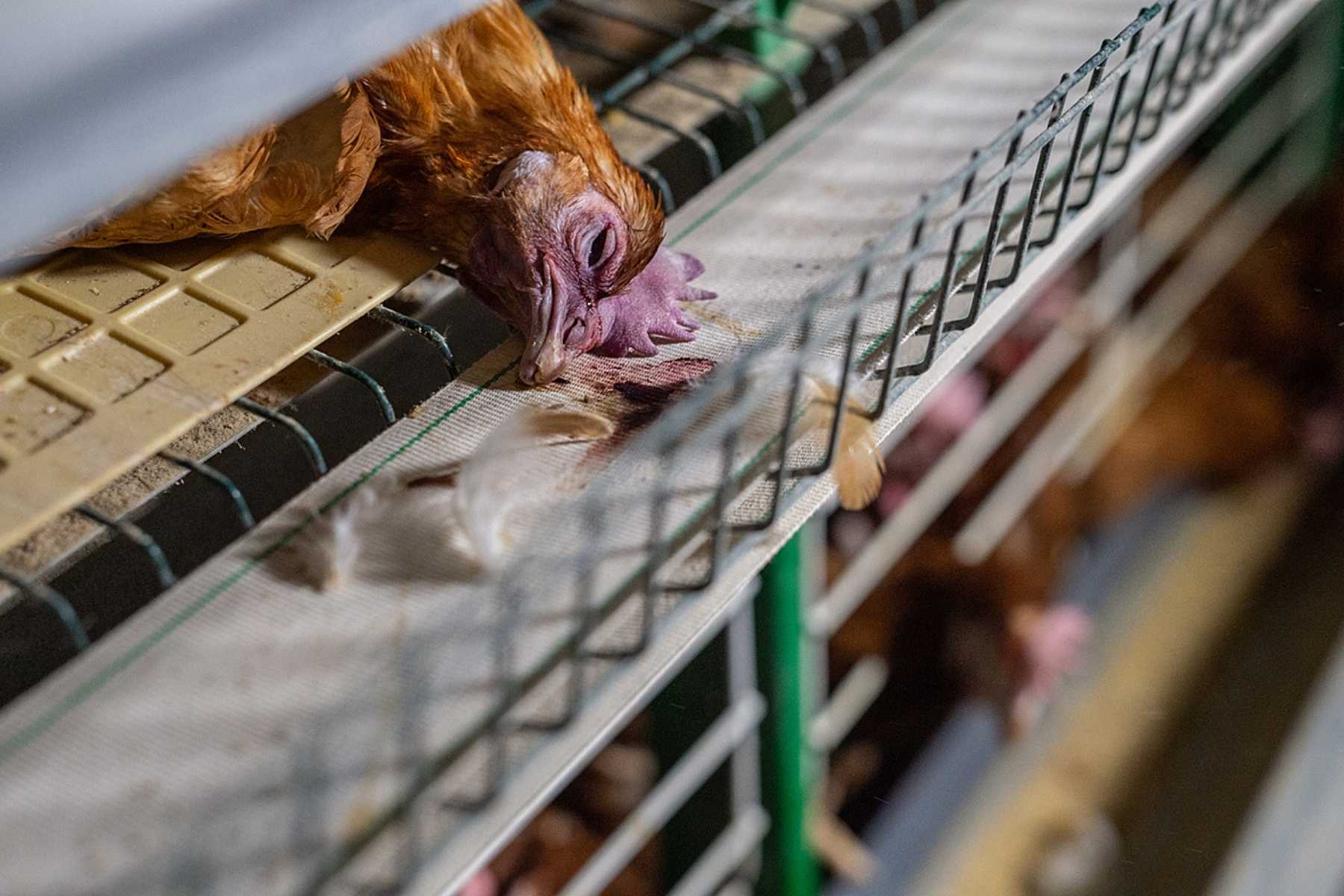
Image Credit: Jo-Anne McArthur / Animal Equality / We Animals Media
Through these means, and more, animals are erased, belittled, mocked, replaced, and denied. When such messages come from every direction — through ads on screen, in the street, at train stations, in shop windows, and on social media feeds, as well as being enforced by parents and peers — children slowly start to bury that innate sense of justice and compassion. By the time they are adults, they are likely to have compartmentalized farmed animals away from other animals. They have learned what the meat industry needs them to learn to be profitable consumers, to love one animal, but eat the other.
But What If We Really Do Care?
To counter those who never stop caring — and we believe that most people still care, despite the work that the industry does to weaken their feelings — there is one last weapon in the industry’s arsenal. It reassures the public through authentic-looking footage and imagery, that the animals are well cared for, that their lives are fulfilled, and that they are loved. That way, we can all continue eating meat, milk, and eggs without our consciences troubling us too much. But, of course, it is not true. Animals on farms are not loved, and for most, their lives are filled with misery, suffering, fear, and loss.
Recently, KFC paid a social media influencer to help showcase the high welfare standards on its chicken farms. But the claims they made just weren’t true — at least they weren’t true when investigators from VFC paid an unannounced visit to the exact same farm just a few weeks after the film was released. All the meaningful enrichment that had been given to the birds when the marketers’ cameras were rolling had been taken away again. Perhaps they were only ever props in a fictional film.
This is what happened.
Being True to Ourselves
The meat industry works hard to counter our natural tendency towards justice, decency, compassion, and love. We are encouraged to laugh at animals, to see them as inferior, stupid or comical, and even not to see them at all. We are taught to push down those loving and just innate feelings and to create elaborate — and illogical — reasonings that allow us to be “an animal lover” while also eating the bodies of animals.
The industry uses its immense marketing budget and lobbying power to keep on hammering these messages home to us. Its vast profits depend on us never acknowledging, or at least never acting on, our true feelings. In this way, the meat industry crushes and denies the very best parts of us, while it crushes and denies the lives of animals.
